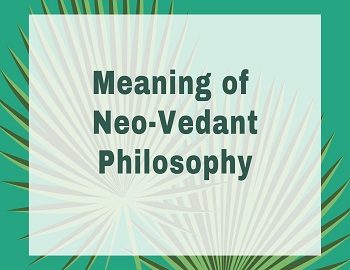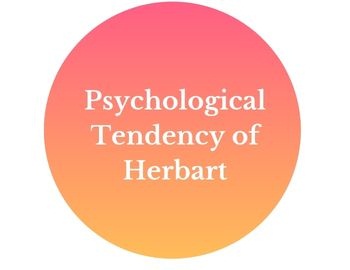Meaning of Neo-Vedant Philosophy:
Neo-vedant, as is explicit from the very term, is the philosophy of vedant in the modern garb or the philosophy of vedant reinterpreted in the light of modern knowledge. As a consequent effect of this re-interpretation, the Vedantist philosophy has acquired a new and somewhat different form. In order to appreciate what is new in it and how is it linked with the ancient vedant, it is called Neo-vedant. The philosophy, as expressed in the ancient philosophic treatises known as Upanishads, is known as the Vedantist philosophy. According to this philosophy, both the quintessence and summum genus of all creation is Brahman and that Brahman, the Lord, is Infinite, Eternal, Omnipresent, Omnipotent and Pure Consciousness. He is the elan Vital or Soul of all. He is truth, Existence and Consciousness. He is the Sustainer of all creation. According to Chandogya Upanishad, Brahman is the creator, the destroyer and the sustainer of this world. The powers of Nature are part of His Infinite power. All forces in the world are active through Him. According to Taittriya Upanishad, all physical existence emerges out of him, is merged into him and is sustained by him. According to Chandogya Brahman pervades all existence and is Omnipresent.
From the foregoing account of the Vedantist philosophy, it is plain that from the viewpoints of Metaphysics, Epistemology, as well as Axiology vedant is monistic, that is, it believes in one Supreme Power behind everything. Thus, Brahman, Soul and Moksha are merely nominal variations of the same element. Most of the modern Indian philosophers also believe that creation is unity in diversity and that self, God and World are all expressions of the Supreme Brahman. Thus the views of these philosophers are closely akin to the Vedantist philosophy. Indeed the Indian philosophy from its very inception to modern times has followed the basic tenets of the Upanishadic philosophy, barring, of course, the heterodox schools like Charvaka, Jain etc. In his famous book The Religion of Veda, the eminent Indologist Bloomfield has very aptly observed: “There is no important form of Hindu thought heterodox Buddhism included, which is not rooted in the Upanishads”. This observation of Bloomfield applies not only to six orthodox systems of Indian philosophy but is also applicable to modern Indian philosophical thought. The eminent Indian thinkers like Gandhi, Aurbindo, Rabindra Nath Tagore, K.C.Bhattacharya, Dr Radhakrishnan all have more or less dilated upon the themes found in Upanishads. If in the words of A.N.Whitehead, western philosophy is only footnotes of Plato, the Indian philosophy can justly be said to be a commentary upon the teachings of Upanishads.









Comments (No)